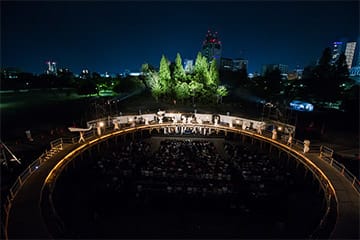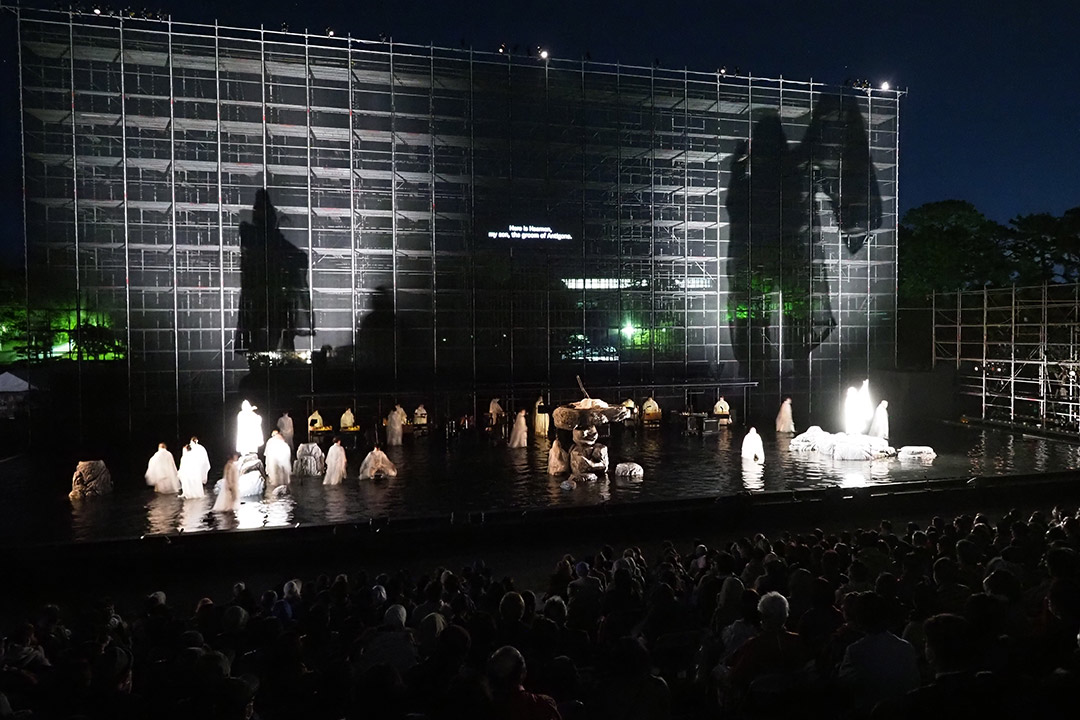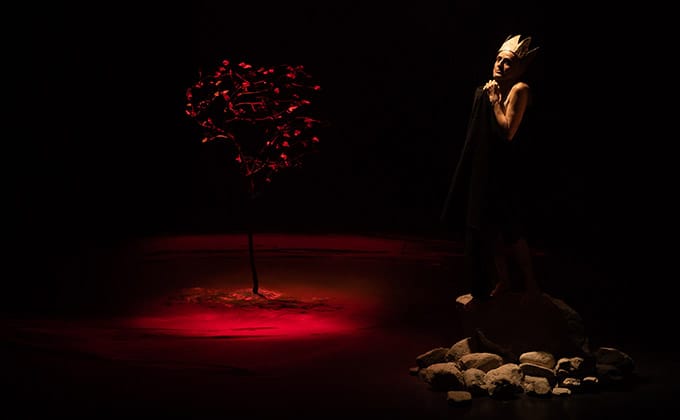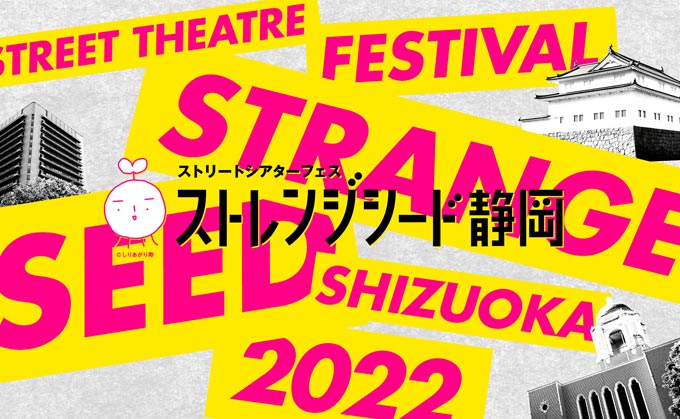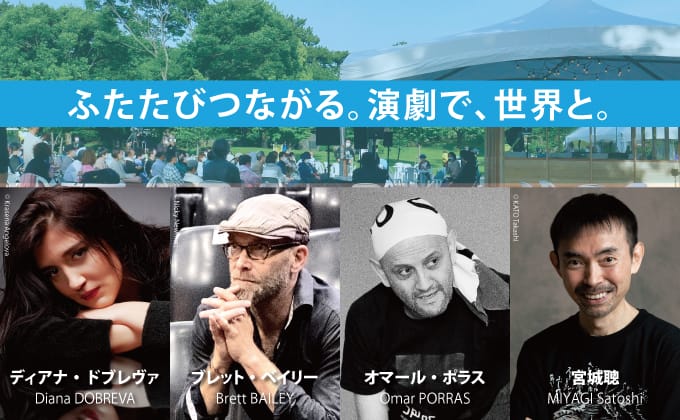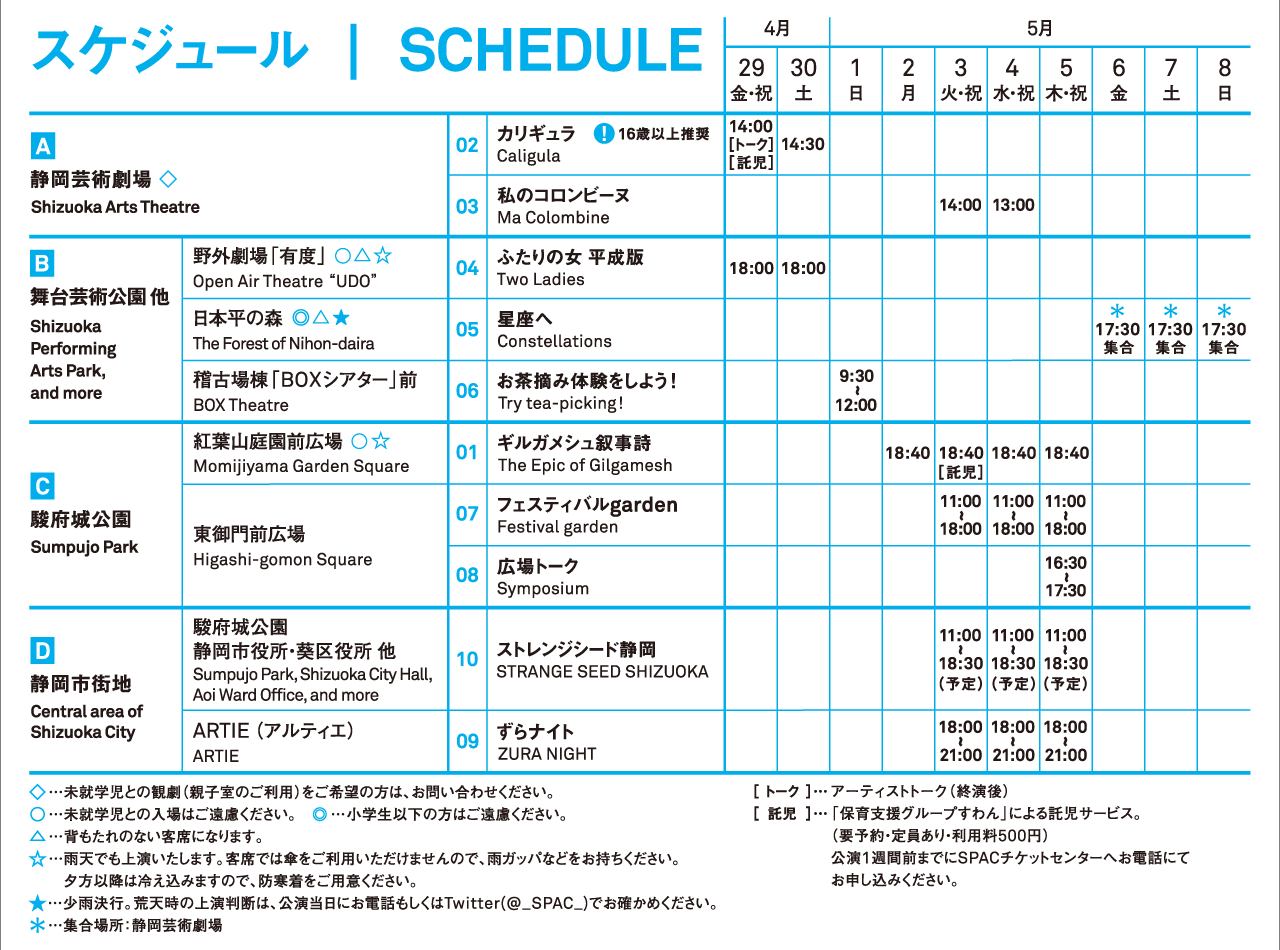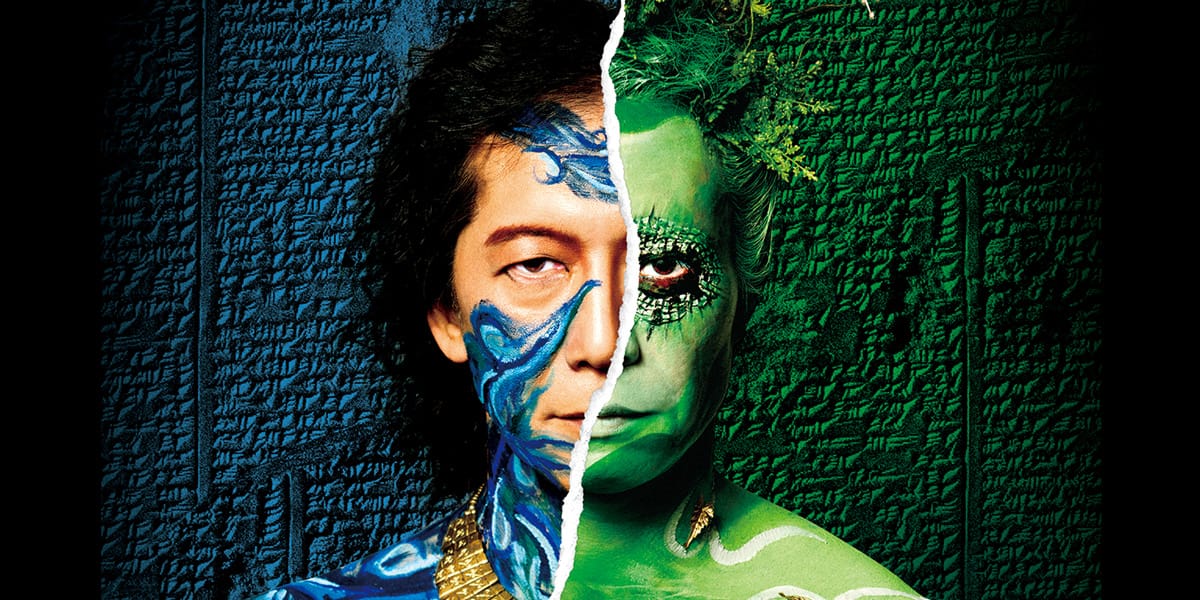
The Epic of Gilgamesh
Program Information
| Genre / City | Theatre / Shizuoka |
|---|---|
| Dates | 2-5 May at 18:40 |
| Venue | At Momijiyama Garden Square, Sumpujo Park |
| Duration | to be decided (less than 120 minutes) |
| Language | In Japanese with English subtitles |
| Seat | Reserved seating |
| Script and direction | MIYAGI Satoshi |
| Translation | TSUKIMOTO Akio, The Story of King Gilgamesh – Lapis lazuli, PNEUMASHA |
| Music | TANAKAWA Hiroko |
| Puppet Design | SAWA Noriyuki |
| Production | SPAC-Shizuoka Performing Arts Center |
Introduction
This new, fantastical musical play by Satoshi Miyagi, SPAC’s General Artistic Director, marks the second collaboration between SPAC and the Musée du quai Branly in Paris, following Miyagi’s acclaimed “The White Hare of Inaba-Navajo” in 2016.
This time, in Shizuoka, they present an exciting, original take on a 4,000-year-old epic of adventure and epic of fellowship centred on the hero Gilgamesh in ancient Mesopotamia.
Following a commission from the Musée du quai Branly, to create their groundbreaking work MIYAGI and SPAC’s actors immersed themselves in this work that was found written in cuneiform on clay tablets and is regarded as the world’s earliest known notable literature and a symbol of ancient civilization.
In 1872, George Smith, a historian with the British Museum, was widely acclaimed for his finding that “The Epic of Gilgamesh” shares the original form of the Bible’s “Noah’s Ark” story although “Gilgamesh” — featuring an eponymous king of Uruk, is set in the city of Sumer (aka Babylon or Uruk) around 2600 BC.
In what MIYAGI emphasizes was originally a tale shared through oral transmission, this great literary work traces the king’s encounters with his best friend, Enkidu, a wild man living close to nature, and questions they face about the destruction of environments in their quest for eternal life.
To present that epic story, MIYAGI set out to create a grand-scale, melodious stage using choral singing and live music performed by SPAC’s actors.
But first and foremost, he collaborated with the renowned Japanese puppeteer SAWA Noriyuki, who is mainly active in the Czech Republic.
As a result, SAWA’s huge puppet of Humbaba — a character in “The Epic of Gilgamesh” who is a monstrous guardian of the Cedar of Lebanon — at times looms over almost the entire stage and dramatically changes the settings one after another.
Together with Humbaba, other smaller puppets of various sizes draw audiences deeper and deeper into MIYAGI’s imaginative ancient world that confronts us with human arrogance and asks how we really do relate to nature.
It may transcend 4,000 years, but this magnificent work cuts to the heart.
Synopsis
Through meetings with his best friend, a man named Enkidu who lives alone in the wild, Gilgamesh, the brutal tyrant ruler of Uruk, gradually matures into a great king for the people. Then one day, Gilgamesh and Enkidu go to the forest of the Cedar of Lebanon to fell trees and build a town. When the gigantic fearsome forest guardian Humbaba appears in front of them, they overcome him — but Enkidu dies for their sin. Then Gilgamesh becomes disturbed in his mind after losing his friend, and starts to worry about his own death. In that condition, he sets out on a journey in search of eternal life.
Director’s Profile
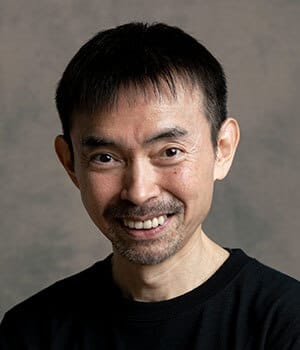
MIYAGI Satoshi
Born in Tokyo in 1959, after studying aesthetics at Tokyo University under ODASHIMA Yushi, WATANABE Moriaki and HIDAKA Hachiro, he founded the KU NA’ UKA theater company in 1990 and soon began staging plays overseas as well as in Japan. As a result, MIYAGI’s work — in which he often fuses contemporary textual interpretations with physical techniques and patterns of Asian theatre — has long been acclaimed both at home and far beyond. Indeed, in 2004 he received the 3rd Asahi Performing Arts Award, and the next year the 2nd Asahi Beer Art Award. Since taking up his position with SPAC in April 2007, MIYAGI has staged many of his own works — including “Medea”, the Hindu epic “Mahabharata”, and “Peer Gynt” — and has invited artists from abroad to present pieces casting a keen eye on the modern world as they see it. In line with his aim to make theatre “a window to the world,” he has also started a new SPAC-based project aimed at the youth of Shizuoka. In 2014, MIYAGI was invited to the Festival d’Avignon, where he received excellent reviews for his open-air version of the Hindu epic “Mahabharata” staged in La Carrière de Bourbon. Following that landmark achievement, the festival extended the honor of inviting MIYAGI to present a Buddhist interpretation he created of the ancient Greek mythological tragedy “Antigone” as its super-prestigious opening program for 2017. On that occasion, which was the first time an Asian play had ever been selected to launch the festival, MIYAGI’s exalted “stage” was the open-air Cour d’honneur du Palais des papes (the Honor Court of the Palace of Popes). By the play’s end, those towering medieval stone walls were ringing out with long and splendid standing ovations welcoming the work’s director and creator along with SPAC’s actors and staff — while more than 60 European media all gave great reviews. In 2018, he received the 68th Minister of Education, Culture, Sports, Science and Technology’s Art Encouragement Prize of Drama. Also he recieved “Chevalier de l’Ordre des Arts et des Lettres” from the Ministry of Culture of France in 2018.
Puppets designer’s profile
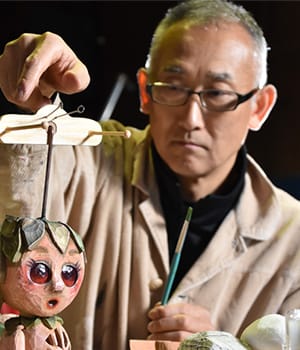
SAWA Noriyuki
SAWA Noriyuki was born in Otaru in Hokkaido in 1961. He moved to France in 1991. Then, after applying successfully to Japan’s national Agency for Cultural Affairs for an Overseas Study Program, he moved to the Czech Republic in 1992. He has since been based in Prague, where he has performed in more than 20 countries as well as lecturing and holding workshops in the Department of Puppet Theatre of the Academy of Performing Arts in Prague, among many other places.
SAWA has also won numerous international awards, including the Franz Kafka Metal in 1999 and the EU Capital of Culture Award in 2011. In Japan, he has worked on videos for NHK’s long-running music program “Minna no Uta” (“Everyone’s Songs”), and has featured in NHK’s interview program “Switch Interview on Specialists.”
In addition, he designed many of the puppets and was the chief director of the Tokyo 2020 Olympics and Paralympics’ official program, “The Tokyo 2020 Nippon Festival ~ Giant puppet project MOCCO.”
Worldwide, SAWA, is recognized as a leader in the field of figure-arts theatre, both for how he creates and operates puppets of all sizes from small to giant.
Cast / Staff
Script and direction: MIYAGI Satoshi
Translated by TSUKIMOTO Akio (PNEUMASHA Co. “”Lapidus Lazuli version Story of the King Gilgamesh””)
Music: TANAKAWA Hiroko
Puppets design: SAWA Noriyuki
Performed by SPAC / ABE Kazunori, OOTAKA Kouichi, ISHII Moemi, OUCHI Yoneji, KATAOKA Sachiko, KIJIMA Tsuyoshi, SAKAKIBARA Yuumi, SAKURAUCHI Yu, SATO Yuzu, SUZUKI Haruyo, SEKINE Junko, DAIDOMUMON Yuya, TATENO Momoyo, HONDA Maki, MORIYAMA Fuyuko, YAMAMOTO Miyuki, YOSHIUE Soichiro, YOSHIMI Ryo / SAWA Noriyuki, KUWAHARA Hiroyuki
Set design: FUKASAWA Eri
Lighting design: YOSHIMOTO Yukiko
Costume design: KOMAI Yumiko
Hair and makeup: KAJITA Kyoko
Stage management: YAMADA Takahiro
Assistant stage management: OGAWA Tetsuro
Sound: SAWADA Yukino
Lighting operation: HANAWA Yuki
Assistant set design: SATO Yosuke, YOSHIDA Yuna
Art production: TSUKAMOTO Kana, SUZUKI Rie
Wardrobe: KOMAI Yumiko
Subtitle operation: OISHI Takako
Assistant direction: NAKANO Masaki
Composition of line: TERAUCHI Ayako
Collaboration: KIJIMA Tsuyoshi
Managing direction: NARUSHIMA Yoko
Technical direction: MURAMATSU Atsushi
administration: OISHI Takako, TAKABAYASHI Rie, IRIE Kyohei
dramatrug: YOKOYAMA Yoshiji
Flyer illustration: YAMANASHI Ruri
Produced by SPAC – Shizuoka Performing Arts Center
Organized by the Committee of the Open-air Performing Arts Festival under Mt. Fuji
Notice
* On 3 May, childcare is available during the performance for pre-school children. To make a reservation, please contact our ticket center by 26 April.
* Admission to auditorium is restricted to children of school age and over.
* Performances will be held even if it rains. As the use of umbrellas is not permitted during a performance, please ensure you have suitable rainwear. You are also advised to bring warm clothes for night performances at this time of year.

